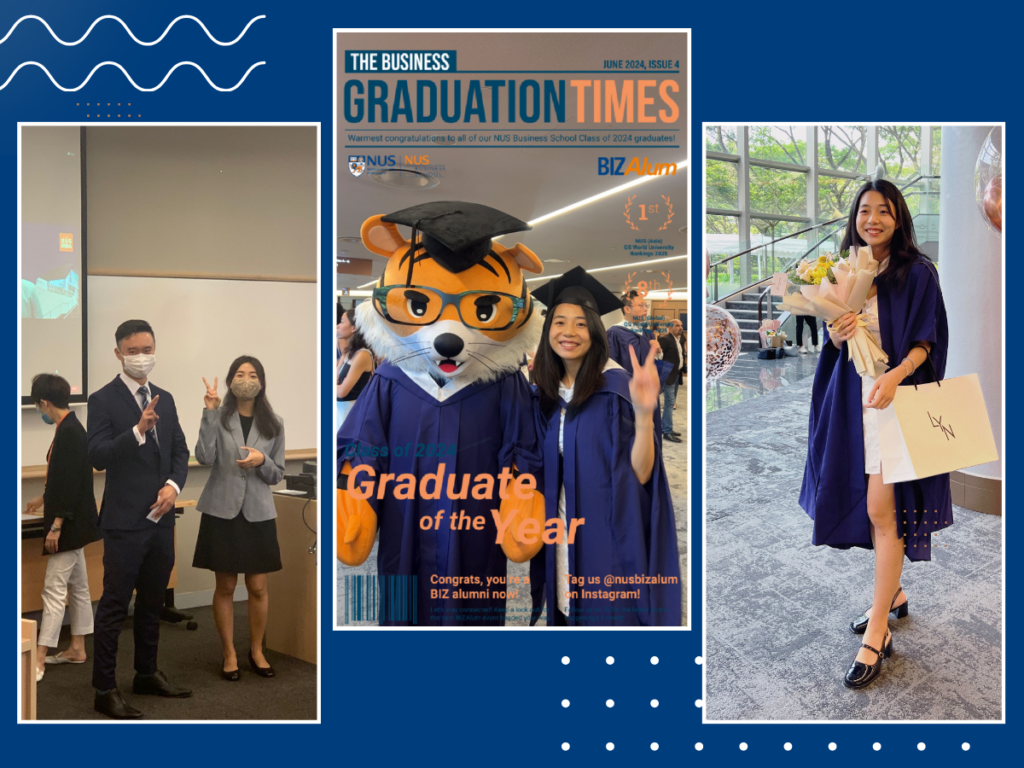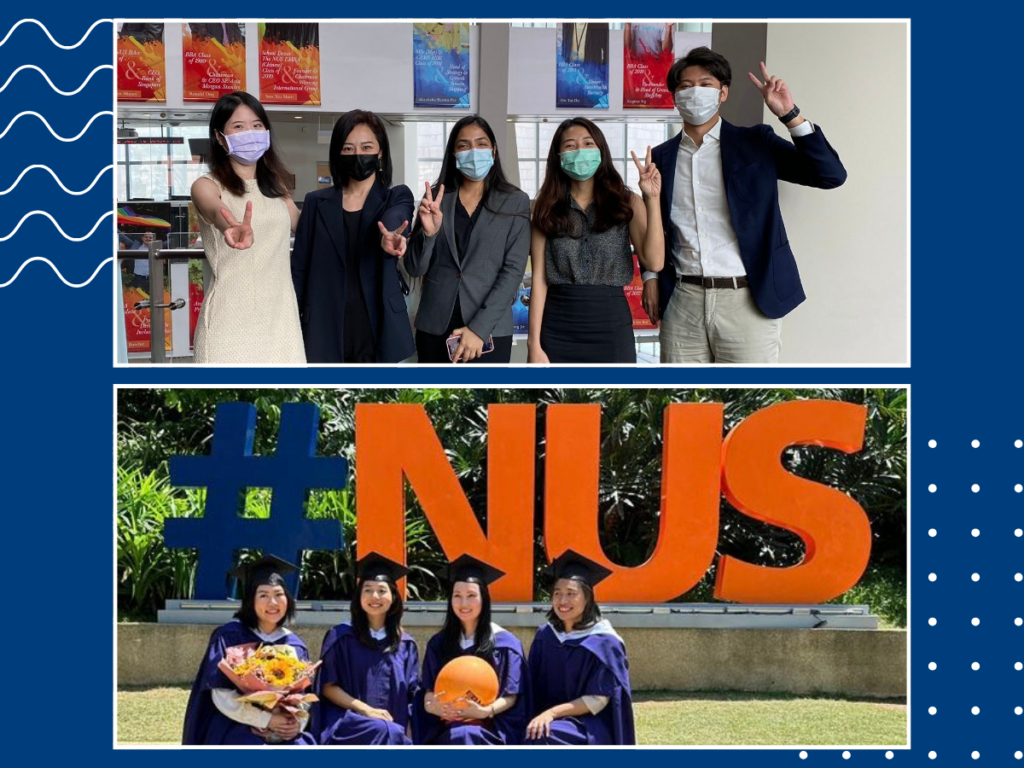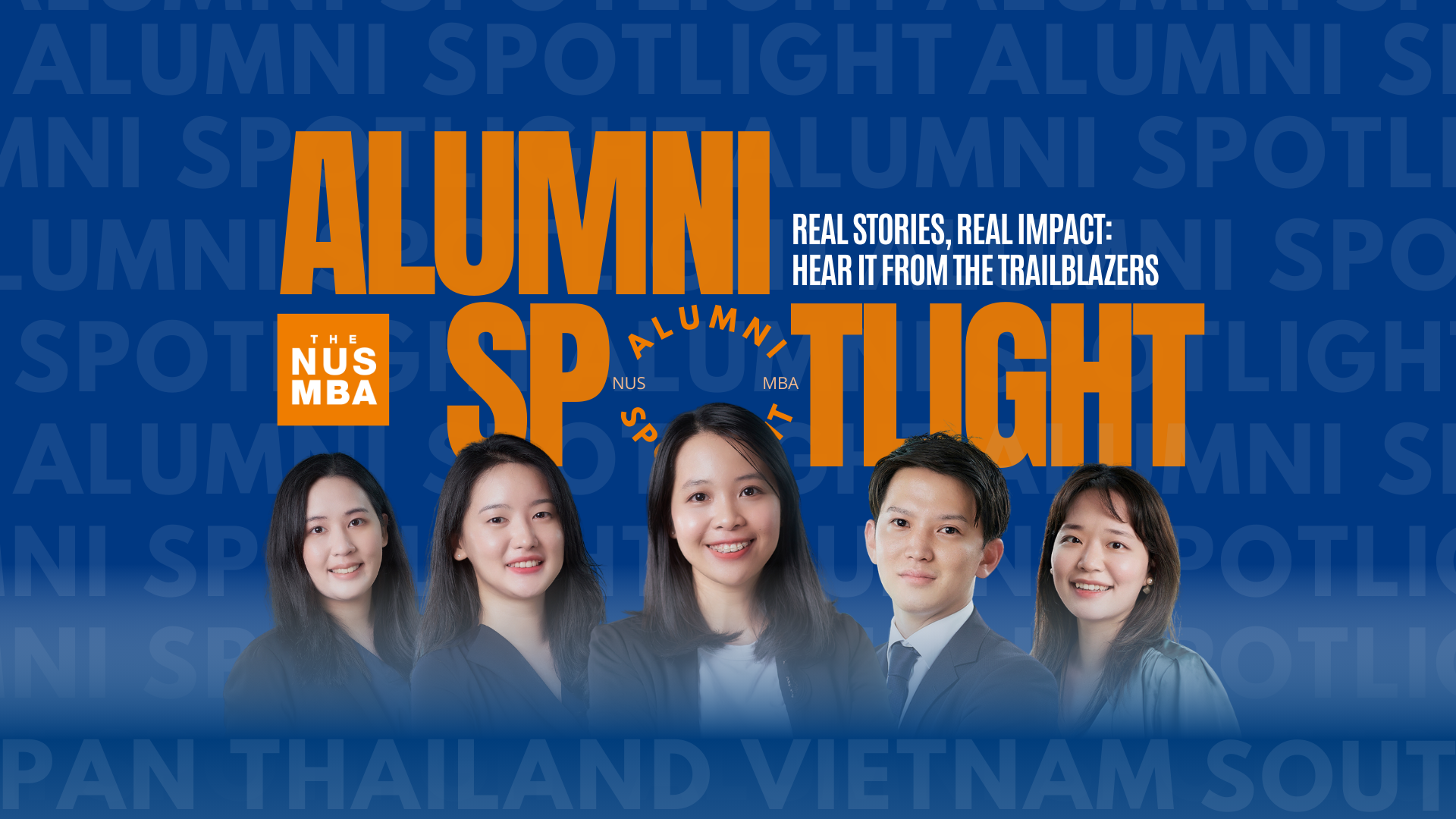Mickey Nayada Ting: From Finance to Tech with the NUS MBA
|
|
Mickey Nayada Ting
|
Balancing academic and professional demands is never easy. Hearing from those who have successfully walked this path can provide valuable insights and help set realistic expectations.
In this feature, we highlight Nayada Ting (Mickey), a 2023 NUS MBA graduate from Thailand. Starting as a full-time student, she later switched to the part-time program to accept an exciting opportunity as a YouTube Strategic Partner Manager at Google. With a background in Accounting and Finance, Mickey utilised the flexibility of the NUS MBA to combine her studies with a career in the tech industry. Through a Q&A, we explore her experiences and how the NUS MBA helped shape her professional growth.
Switching from a full-time to a part-time MBA allowed you to take on a role at Google mid-program. How did this flexibility affect your overall MBA journey?
My NUS MBA journey took an unexpected but ultimately fulfilling turn. I initially enrolled as a full-time MBA student, but I quickly became aware of the challenging job market. To proactively address this, I spoke with career advisors, classmates, and senior MBA students, who encouraged me to explore all my options. Leveraging the program’s flexibility, I pursued both internships and full-time roles, ultimately accepting a position as a YouTube Strategic Partner Manager at Google.
The MBA office was extremely helpful in this transition, helping me adjust my course schedule to accommodate my new role. Thanks to their support and the program’s adaptable structure, my MBA experience remained incredibly rich. I continued taking the modules that interested me most by attending evening classes while gaining valuable real-world experience at Google.
While I anticipated completing my MBA in 1.5 years as a full-time student, the shift to part-time extended my journey to 2 years. However, this change also allowed me to connect with a broader network of working professionals in the part-time program, enriching my perspectives and expanding my professional network. Looking back, I have no regrets about transitioning from full-time to part-time. The NUS MBA program’s flexibility has been invaluable, enabling me to launch my career at Google while pursuing my academic goals. This experience has reinforced the importance of adaptability and proactive planning, skills that will undoubtedly serve me well in the future.

Can you share specific examples of how insights from The NUS MBA influenced your work at Google?
Having completed a Bachelor’s degree in Accounting and Finance, I had prior exposure to some business and management concepts. However, what I lacked before the MBA was a strategic mindset, critical thinking approach, and leadership skills. I believe that The NUS MBA significantly improved my effectiveness as a YouTube Strategic Partner Manager.
The program’s focus on strategic thinking, through case studies and market research, equipped me to analyse the YouTube landscape and provide data-driven recommendations to my partners. With my existing financial background and the leadership skills I learnt through Leading with Impact, I was able to guide my partners on monetisation strategies while strengthening partner relationships and internal collaboration.
Additionally, I took an elective in Mastering Influence to ensure that I’m able to pitch new ideas, features, or programs to my partners effectively. Lastly, the NUS MBA’s emphasis on innovation and growth has been valuable for my work ethic at Google. However, I feel that it is up to us to apply our learnings to different settings at work. In my case, I was able to help partners develop compelling content strategies, achieve channel growth, optimise monetisation, and secure strategic partnerships.
Can you share the challenges of balancing your MBA studies and your role at Google? How did these challenges shape your long-term career goals?
Initially, I thought that time management and priorities would be my biggest challenges as I had to juggle a demanding full-time role at Google with the rigorous coursework and projects of an MBA program. However, time management wasn’t too bad once I got the hang of attending evening classes after my working hours. Additionally, I ensured to prioritise my time based on things that needed to be done and put social and personal life on the back burner.
The greatest challenge for me was coping with the mental and physical exhaustion of the combined workload. Attending evening classes after a full day at work was taxing, and staying up late for school often left me feeling fatigued during the day. While I don’t have a perfect solution for this, I can assure you that it will be worthwhile at the end of the day. The sense of accomplishment I felt on the final day of class was extremely rewarding.
I believe that by being able to balance my MBA studies and my role at Google, I further refined my time management and prioritisation skills, increased resilience and determination, and also gained a better understanding of my career expectations. In conclusion, while balancing an MBA with a full-time role presents significant challenges, the rewards are immense. The skills, experience, and network gained during this demanding period can shape long-term career goals and pave the way for future success.

Coming from an Accounting and Finance background, how did The NUS MBA help you transition to a role in the tech industry?
Having an Accounting and Finance background, coupled with working experience in banking, my opportunities outside my current job were very limited. I had a hard time transitioning into other industries outside of banking prior to doing my MBA at NUS. Additionally, as I had no experience working outside of the banking industry, I wasn’t sure which industry I wanted to shift to. I initially wanted to get into FinTech so that I could use my knowledge while being able to use my creativity for innovations.
The NUS MBA was able to help me learn more about different industries through networking with seniors and course mates and also have real-life experience working in other industries through the MBA Consulting Project. Moreover, as my bachelor’s degree was taught in a large classroom, there were no interactions between students and professors or among students themselves. The real-life case studies in every course were able to give me a clearer picture of each role and industry. Meanwhile, the requirements for class participation and presentation skills taught me to be more proactive, outspoken, and confident in my speech.
Lastly, the core classes such as Managerial Operations and Analytics, and Marketing Strategy helped me build a constructive way of thinking, which is important for an ever-changing business environment.
What advice would you give to future students who plan to combine their MBA with a demanding role in tech or a similar industry?
An MBA alongside a demanding full-time career—or even by itself—is a challenging yet rewarding endeavour, in my opinion. I would say that the key to success is mastering time management: be organised, prioritise efficiently, and be willing to sacrifice some of your leisure time.
What I thought I could do better was to leverage my network by connecting with classmates for support more, engaging with professors for guidance, and tapping into the professional network for advice. Maximise your MBA experience by actively participating in classes, applying learned skills to your current role, and staying focused on your career goals.
Starting early is always better! I actually started looking for a job after the first month here. However, remember to prioritise your well-being by getting enough sleep and maintaining a healthy diet. Working or studying overnight, or skipping meals, is not beneficial in the long run. The MBA journey is a marathon, not a sprint. Pace yourself, stay focused, and take care of yourself along the way. I always believe that the start is the hardest. So, believe in yourself and just go for it.


